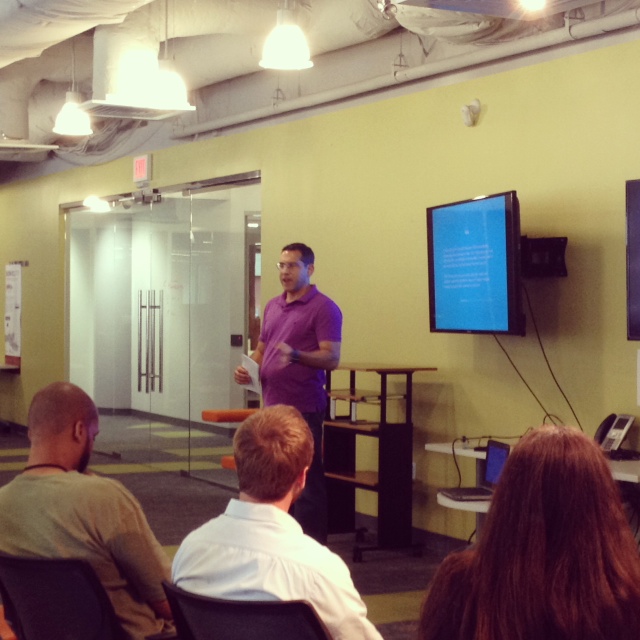The City of Philadelphia has chosen Salesforce.com to upgrade its non-emergency call system known as 311, said Stuart Alter, director of engagement management for the city’s Office of Innovation and Technology (OIT). The project is part of the city’s $120 million initiative to upgrade its technology infrastructure.
Launched in 2008, the city’s 311 system was not built to handle the volume of data that it handles now, Alter said at Friday’s Open Access Philly meeting at Drexel University’s ExCITe Center, adding that it also wasn’t built with archiving in mind.
The city chose publicly-traded San Francisco giant Salesforce.com to overhaul the system in part because of its capabilities as a platform, said Alter, who is overseeing the project. Salesforce.com has its own app store, he noted. That way, the city’s investment can go further than just merely paying for a new system. It’ll be able to take advantage of other apps that work on the Salesforce platform.
For years, Technically Philly has heard that one of the biggest limiting factors for 311 to crunch data or better leverage its workforce efficiency learning was its IT backend. This is aiming to be that leap forward.
Once the contracting paperwork is completed, the project will take roughly one year, said Alter, who manages a team of staffers that act as a liaison between city agencies and OIT.
At Open Access Philly, Alter also spoke about the changes inside City Hall with respect to innovation, like open data and open source platforms.
“When we first started talking about releasing data [two years ago], it was almost like a bad word,” Alter said. “We’d whisper it.”
But two years later, Alter said, the mayor signed an Open Data Executive order, pledging to release data sets.
Similarly, he said that open source “used to be a bad word.” Then, “Code for America came along and made me think differently,” he said, referring to the team of fellows that were placed inside City Hall to help innovate within city government.
Still, he acknowledged that there’s work to be done. One process that has to be rethought is procurement, said Alter, who’s worked in the IT sector for 30 years at companies like Oracle and VerticalNet. He likened the city procurement process to buying a cell phone.
If it took eight months to acquire a cell phone, would you still want the same phone after those eight months? He asked.
Read more about how Philly is attempting to change its procurement process on Chief Data Officer Mark Headd‘s blog and in our story about Big Ideas PHL, the city’s nearly six-month-old site for tech contracts.







